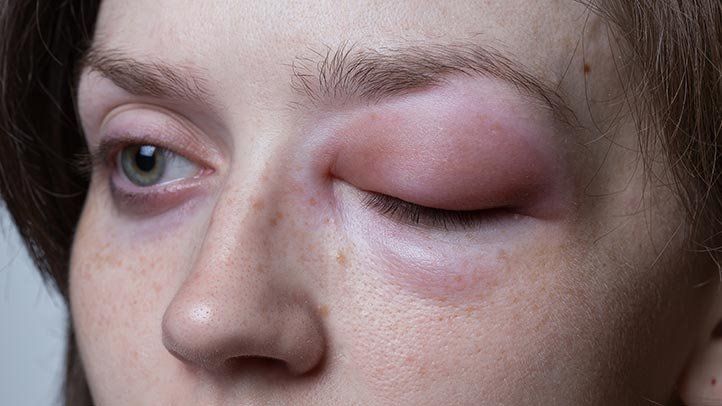Angioedema is a skin-deep swelling in many body parts, including your face, throat, larynx, uvula, arms, hand, or feet. It can also affect your genitals and intestines in most cases.
The swollen areas may experience redness, pain, or warmth. The swelling caused by angioedema may also feel like huge, thick, solid welts. If the condition affects your lower intestine, it is expected that you will experience stomachaches. Additionally, it could be dangerous if your tongue or throat swells due to angioedema as it could block your airways and make breathing difficult.
Types of angioedema
There are several types of angioedema. Specifically, there are four types of this condition that have different causes and triggers. Angioedema types include the following:
Allergic angioedema. The most typical kind of this condition is allergic. You may experience an allergic reaction to meals that include shellfish, peanuts, tree nuts, eggs, and milk. You can also experience allergic angioedema from pollens, animal dander, latex and insect stings. On the other hand, drugs like penicillin, aspirin, and other non-steroidal anti-inflammatory drugs (NSAIDs) may also trigger allergic angioedema.
Hereditary angioedema (HAE). It is a rare condition that occurs when your body does not produce enough C1 esterase inhibitors, a type of blood protein. This enables blood to leak into other tissues, resulting in angioedema.
Acquired angioedema. This type has similar symptoms as HAE. However, it is different because it only happens once you cross 40 years of age. It usually occurs when your immune system is compromised. However, this is not a hereditary condition such as HAE.
Idiopathic angioedema. This refers to a swelling where the cause of the node is unknown. In most cases, the potential causes of idiopathic angioedema may include anxiety, stress, minor infections, and high or low temperatures.
Symptoms of angioedema
Signs and symptoms of angioedema can include any of the following:
- Puffy or swollen face, especially your eyes, mouth, lips and tongue.
- Digestive issues when your intestines are swollen (abdominal pain, diarrhea, nausea, and vomiting).
- Swollen hands, feet or genitals.
- Dizziness or fainting.
- Swelling in your mouth, throat or airways making it difficult to talk and breathe.
Who can get angioedema?
The chances that an individual can get angioedema are higher if they have the following:
- Had hives, allergic reactions, or angioedema before
- Lupus, lymphoma, thyroid disease, hepatitis, HIV, cytomegalovirus, Epstein-Barr virus, or have had a blood transfusion
- A family history of hives
- Asthma
- Taken NSAIDs
- Taken ACE inhibitors
- Had recombinant tissue plasminogen activator therapy for a stroke
Treatment
Angioedema typically gets better on its own in a couple of days. If you do require treatment, it can include:
- Antihistamines and oral corticosteroids to reduce swelling and inflammation
- Medications that suppress the immune system if antihistamines and corticosteroids are ineffective
- Leukotriene antagonists, a class of non-steroid anti-inflammatory drugs that reduce pain and swelling
- Blood protein controllers for hereditary
If a drug is the cause of your angioedema, your doctor will typically move you to a different medication that suits your condition better.
Prevention
You can prevent allergic episodes of angioedema if you stay away from foods, drugs, or other situations that can trigger swelling. Try keeping a diary to note foods, issues, and circumstances connected to your symptoms if you do not know what’s triggering your episodes.
Your doctor could advise you to take antihistamines daily rather than only when necessary. This can make your episodes less severe, less frequent, and even less dangerous.

